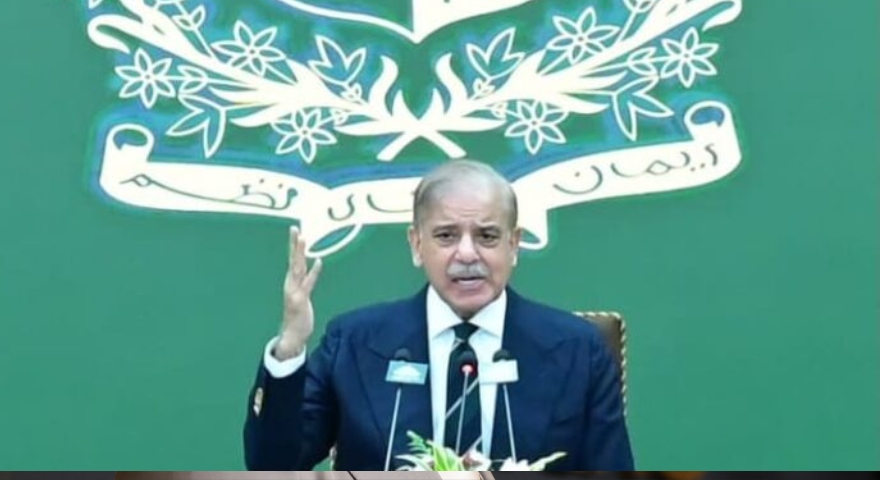- Web Desk
- Feb 24, 2026
PM accuses PTI of fueling economic instability
-

- Hum News
- Nov 28, 2024

ISLAMABAD (APP): Prime Minister Shehbaz Sharif on Thursday reiterated his government’s commitment to transforming Pakistan’s economic landscape, emphasizing the intrinsic link between economic stability and national security.
“If we are economically strong, our exports are growing, and the industrial sector is expanding, our economic security will naturally bolster our critical national security,” the prime minister said at the 26th National Security Workshop at the Defence University.
He stressed the importance of a comprehensive “Charter of Economy”, recalling that he had proposed the idea as opposition leader in 2018. “We are now fully prepared to execute this vision,” he stated.
Read More: PTI Secretary-General Salman Akram Raja steps down amid criticism
Highlighting the need to privatize state-owned enterprises (SOEs), the prime minister argued that the government’s role should be limited to facilitating private businesses. “The government must step out of business operations entirely to save trillions of rupees,” he said, adding that he and the Army Chief were aligned on this issue.
Praising the Pakistan Stock Exchange’s historic milestone of surpassing 100,000 points, the prime minister attributed the achievement to effective teamwork and collaboration among the federal government and key stakeholders. However, he noted that the market had briefly plunged 4,000 points earlier due to instability caused by the (PTI) protest in Islamabad.
Shehbaz Sharif acknowledged the economic challenges the country faces, pointing out that Pakistan was on the verge of default in June 2023. The government’s standby agreement with the International Monetary Fund (IMF) provided critical relief, though he admitted the program imposed hardships on the public.
“While this IMF program brings difficulties, we had no choice. I hope it will be the last such program for Pakistan,” he said, adding that the government was working on a homegrown economic plan to be implemented with full dedication.
Addressing broader issues, the prime minister noted that Pakistan had lost 80,000 lives and suffered $130 billion in economic losses during its fight against terrorism. He expressed grief over the resurgence of terrorist activity, including recent incidents in Parachinar.
Referring to the PTI protest in Islamabad, the prime minister accused participants of attempting to create chaos. “Thousands marched with weapons, seeking to undermine the government’s efforts to stabilize the economy,” he said, vowing to protect Pakistan’s future through unity and collective action.
During a Q&A session, the prime minister discussed the challenges of external and internal debt, emphasizing the need for economic growth, tax reforms, and tackling circular debt in the power and gas sectors.
Several ministers, including Deputy Prime Minister Ishaq Dar, Finance Minister Muhammad Aurangzeb, and Planning Minister Ahsan Iqbal, were present at the event.




